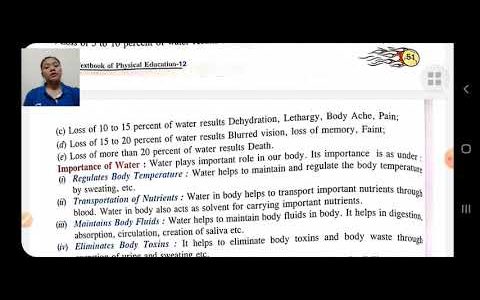💧H2O💧
🚰Water Is an Essential Nutrient
The human body is made up of over 60 percent water. Research continues to report positive findings on why drinking plenty of water every day is essential to good health.
Our bodies need water to maintain hydration, digestive, heart, and lung function, joint lubrication, protection of tissues, regulation of body temperature, and much more.
Water can be considered our lifeline and its health benefits are endless. It keeps us feeling, functioning, and even looking our best.
🚰Water Helps With Weight Loss
Some studies suggest that increasing your water may help in the weight loss process, especially when consumed instead of other high-calorie beverages. Replacing calorie-sweetened beverages with water can result in weight loss as well by reducing overall calorie intake.
Drinking a glass of water before a meal has shown to decrease appetite, aid in digestion and boost metabolism.
People often confuse thirst for hunger, which can promote weight gain. Proper hydration has been linked to better portion control and improved weight loss results
Nutrition experts often recommend assessing your fluid intake if you are feeling fatigued. Inadequate hydration can lead to feelings of tiredness and fatigue. A simple test for dehydration versus hunger has shown to help with portion control.
Drinking water throughout the day can also reduce the desire to consume sugary sodas or juices, which are loaded with unnecessary calories.
A study on water-induced thermogenesis demonstrated that drinking cold water increases energy expenditure in the body. The increase in energy appears to be created by the body’s effort to warm the water up to body temperature. This theory would help explain the boost to metabolism and increased weight loss.
🚰Water Reduces Belly Bloat
Holding water or feeling bloated can feel uncomfortable. It’s typically caused by poor digestion, increased sodium intake, and is also associated with fluctuations in hormones related to the menstrual cycle.
Many people believe that if they are bloated they should avoid drinking water, but for those people without pre-existing health conditions this is usually not the case. Keep in mind that there is a difference between occasional bloating and chronic water retention which can be a sign of kidney problems or other health issues. Speak to your healthcare provider if you are bloated often or if you are concerned.
Retaining water is the body’s natural protective measure to prevent dehydration. If you’re bloated, it’s not the time to hold back on drinking fluids.
Water is a natural remedy to reduce bloating. Drinking plenty throughout the day jump starts the flushing process.
Drinking more water will reduce the amount of retained salt. It also lubricates the colon which will hasten the elimination of belly-bloating foods.
🚰Water Assists Digestion
Insufficient fluid intake can affect your digestion and contribute to constipation. To keep things moving at a regular and comfortable pace, be sure you’re drinking enough water.
The water from what you eat and drink in a day binds to soluble fiber in the large intestine. This helps to increase stool bulk, reduce transit time, and makes it easier for you to eliminate waste.
When there isn’t enough fluid for these tasks, the body pulls water from stool, leading to symptoms of constipation.
Drinking plenty of water helps prevent constipation, promotes healthy digestion, flushes toxins, and eases the burden on the kidneys and liver.
🚰Water Keeps Our Skin Healthy
Do you suffer from dry and lifeless skin? You might need to drink more water. Clear skin starts from within and benefits from proper hydration.
The body loses water through sweat—especially during a workout and in hot environmental conditions. Drinking water ensures rehydration and replenishment of the natural lubrication to our skin.
Your skin loves moisture. Drinking plenty of water helps restore suppleness and eliminates dryness.
Using lotion to help moisten your skin is fine too, but drinking water remains the primary way to maintain well-hydrated skin.
🚰How Much Water Should I Drink?
Our water requirements are met through what and how much we drink, as well as a small amount from the food we eat. Water requirements differ from one person to the next based on age, environment, and activity levels.
The Food and Nutrition Board released new dietary reference intakes for water stating: “It is recommended that women consume 2.7 liters (91 oz.) daily and men consume 3.7 liters (125 oz.) through various beverages (80%) or in food (20%).”
We lose water as part of normal bodily functions like sweating, breathing, and going to the bathroom. If we are physically active, in a hot climate, running a fever, or have symptoms like diarrhea or vomiting, even more fluid is lost.
source



